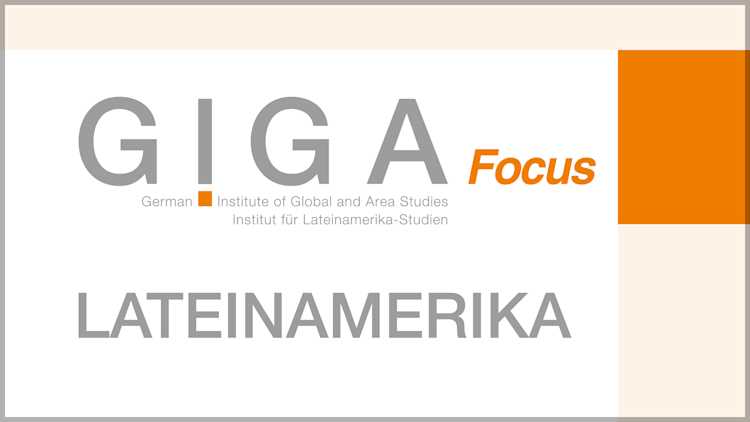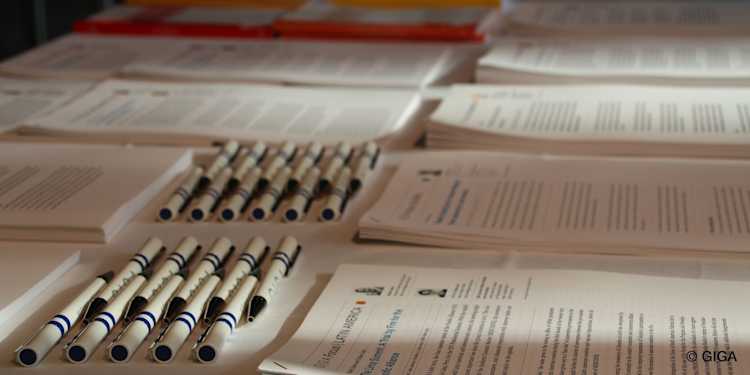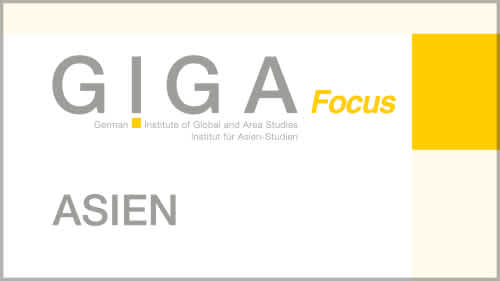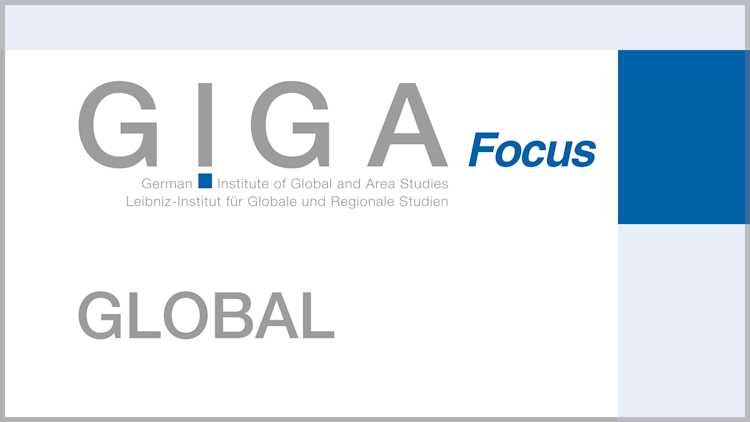- Home
- Publications
- GIGA Focus
- Myanmar: Autoritarismus im Wandel
GIGA Focus Asia
Myanmar: Autoritarismus im Wandel
Number 7 | 2008 | ISSN: 1862-359X
Vor 20 Jahren erlebte die Demokratiebewegung in Myanmar (Birma) ihren bisherigen Höhepunkt, als am 8. August 1988 100.000 Menschen in Rangoon für die Demokratie demonstrierten. Das sozialistische Einparteiregime brach zusammen und machte einer Militärregierung Platz, die sich bis heute an der Macht hält.
Analyse Das Militär hat in den letzten zwei Dekaden seine Herrschaft langsam konsolidieren können. Aus einer Politik der Stärke heraus leitet das Militär nun einen Wandel ein und lässt knapp 20 Jahre nach den Demonstrationen von 1988 über eine neue Verfassung abstimmen; für 2010 sind Wahlen versprochen. Gleichzeitig stellt das Militär sicher, dass ihm auch in Zukunft eine wichtige Rolle im Staate zukommt.
Das Militär hat im vergangenen Jahrzehnt die territoriale Durchdringung des Staates erhöhen und seine Stellung konsolidieren können. Mit Hilfe einer geschickten Modernisierungs- und Beförderungspolitik hat es sein korporatives Interesse befriedigen und Risse innerhalb des Militärs verhindern können. Die äußere Sanktionierung des Militärregimes hat den Korpsgeist der Armee noch gefördert.
Das Militärregime nutzt im Wesentlichen Repression und Propaganda, um seine Herrschaft abzusichern. Die Proteste gegen die Herrschaft des Militärs im Jahre 2007 haben indes gezeigt, dass das Militärregime zusätzlicher Legitimationsmittel bedarf, um sich dauerhaft an der Macht halten zu können. Externer Druck und interner Protest haben dazu geführt, dass das Militär die lange versprochenen Reformen allmählich umsetzt. Dabei monopolisiert es jedoch den gesamten Reformprozess und versucht, sich weiter eine dominante Stellung im politischen System zu sichern.
Die neue Verfassung sieht nach wie vor eine dominante Rolle für die Streitkräfte vor. Gleichzeitig erlaubt sie aber – anders als beim jetzigen Status quo – die Repräsentation anderer gesellschaftlicher Kräfte. Es besteht die Hoffnung, dass mittelfristig neue Spielregeln entstehen, die zu einer größeren Öffnung führen und den rigiden Autoritarismus aufbrechen.
Footnotes
Regional Institutes
Research Programmes
How to cite this article
Bünte, Marco (2008), Myanmar: Autoritarismus im Wandel, GIGA Focus Asia, 7, Hamburg: German Institute for Global and Area Studies (GIGA), http://nbn-resolving.de/urn:nbn:de:0168-ssoar-274429
Imprint
The GIGA Focus is an Open Access publication and can be read on the Internet and downloaded free of charge at www.giga-hamburg.de/en/publications/giga-focus. According to the conditions of the Creative-Commons license Attribution-No Derivative Works 3.0, this publication may be freely duplicated, circulated, and made accessible to the public. The particular conditions include the correct indication of the initial publication as GIGA Focus and no changes in or abbreviation of texts.
The German Institute for Global and Area Studies (GIGA) – Leibniz-Institut für Globale und Regionale Studien in Hamburg publishes the Focus series on Africa, Asia, Latin America, the Middle East and global issues. The GIGA Focus is edited and published by the GIGA. The views and opinions expressed are solely those of the authors and do not necessarily reflect those of the institute. Authors alone are responsible for the content of their articles. GIGA and the authors cannot be held liable for any errors and omissions, or for any consequences arising from the use of the information provided.








